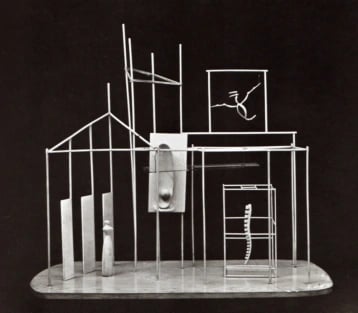Beginnings 3
7/10/20123 min read
... To start with a p.s. to the 2d chapter, about my Middlebury composition teacher George Todd - he invited me to his house to listen to Boulez' Le marteau sans maitre over a bottle of Scotch - an utterly new world for me - and as I left he pressed the record into my hands. This impetuous generosity set the tone for our relationship. When I dodged the draft and came to Canada in 1968, he was one of the first to write to me - a beautifully balanced and very wise letter.
Now, to continue from Beginnings 2: My gig at the Bonnie Scot Club came to an end - none too soon! - when the tenor was engaged for a week-long gig at the Avalon Lounge in St. John's, Newfoundland, and invited me to accompany him. We were not a success: Charlie was an old-school tenor, and he wore a sort of semi-military Scots uniform, which went down beautifully in Montreal - but did not impress the fishermen of St John's; our operatic rendition of 'Bonnie Scotland, Scotland aye sae braw' was received in glacial silence. The next day I ran down to the nearest music shop and bought a collection of local folk songs, which we learned in haste but performed with enough gusto to garner a few desultory claps. I later learned that the club's previous act had been The Platters - the contrast must have been rather startling. Charlie had a beautiful voice, and we performed together on several subsequent occasions in Montreal - he would perform in both Irish and Scottish pubs, using his father's name (O'Leary) for the former, and his mother's (Greville) for the latter.
My parents realized that I was serious about music, and that nothing else would really ever satisfy me, and thanks to them I was able to attend McGill. It was not a good match: despite my intense (and, from current perspective, entirely fortunate) disillusionment with Harvard, I was expecting to enter a sort of Parnassus full of enthusiastic, utterly devoted, passionate young musicians. (I later learned that the Conservatoire was such a Parnassus, with students such as Michel-Georges Brégent, Michel Gonneville, Claude Vivier attending our concerts and engaging with us, with the kind of intensity I'd hoped to find at McGill). I was fortunate, however, in several of my teachers, particularly Bruce Mather (composition) and Alan Heard (analysis). Bruce was a perfect combination of rigor and sensitivity; he sensed one's capabilities, as well as the particular nature of one's talent, and with gentle implacability he helped one's voice to emerge. It helped also that his own music was so limpid, so exquisitely and unashamedly beautiful. As for Alan, I particularly remember his classes on Brahms 4 and of the Berg violin concerto; it was not possible to have one's love for these works immeasurably strengthened by confronting their innermost depths, and perceiving the breathtaking structural unity underlying their beauty. During my second year, Bruce was on sabbatical and I studied with Charles Palmer, who gave me a freer hand, encouraging me to work in larger forms; the sequence of contrasting teaching styles was, I think, extremely fortunate.
But I was an erratic student, acing my courses in composition, orchestration, piano, and analysis, and utterly neglecting everything But I was an erratic student, acing my courses in composielse. The highlight of my second year was that my setting of Lawrence Raab's poem 'The Palace at 4 A.M,' inspired by Giacometti's sculpture of the same name, was one of three works chosen to represent McGill at the International Student Composers' Symposium. It is scored for soprano, three percussionists, cello, harpsichord and piano. Margo McKinnon, a reigning figure on the contemporary music scene, took on the very demanding soprano part, making frequent visits to my hovel of an apartment on rue Napoléon to rehearse; her kindness and generosity are a shining memory. The musicians were splendid, and I remember with particular pleasure a visit to the studio where the three percussionists dramatically expanded my awareness of the magic which might emerge from their amazing arsenal.
Still, I could not have continued at McGill without a dramatic alteration in my attitude toward academia, an unlikely development in this particularly bohemian stage of my life. It was necessary to earn a living. I answered an ad for a teaching assistant at a private elementary school - out of sheer economic necessity - and got the job. I quickly discovered that teaching suited me, and that I was good at it. And I was extremely lucky that the person whose assistant I had become, Mme. Zora Srepel, was a brilliant teacher and an inspiring mentor.


